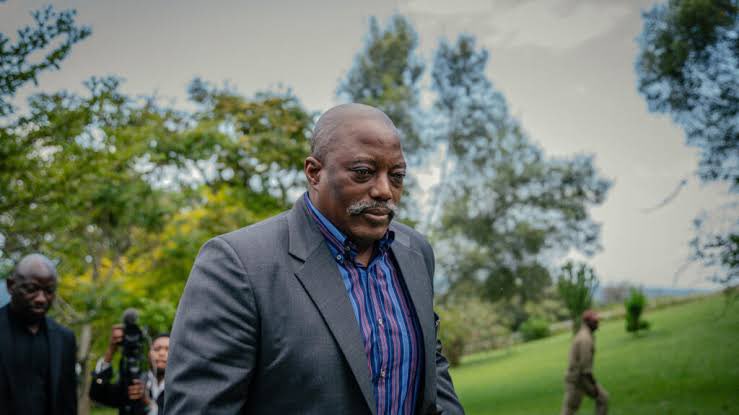Former Democratic Republic of Congo (DRC) President Joseph Kabila Kabange has been appointed as the president of a new political movement, Save the Democratic Republic of Congo. The development has raised concerns about the prospects for political stability in the country.
The political movement was announced following a conclave held from October 14 to 15 in Nairobi, Kenya. The meeting attracted opposition political figures, including Franck Diongo, Augustin Matata, Seth, Jean-Claude Mvuemba, and Théophile Mbemba, among others. The conclave also endorsed 12 proposals aimed at resolving the crisis in the DRC.
Key proposals included restoring the rule of law, ending dictatorship and war, reinstating state authority, restoring democracy, promoting national reconciliation, reviving development, and withdrawing foreign troops from Congolese territory. In an official statement, the new political movement expressed support for dialogue initiatives led by the National Episcopal Conference of Congo and the Church of Christ in Congo as a way to resolve the crisis.
The group also criticized the shrinking civic and political space within the country. The movement rejected the recent ruling by the High Military Court, which sentenced Kabila to death. It argued that the decision is null and void as it violates the constitution and the laws governing the status of former heads of state. In late September 2025, the Congolese High Military Court, presided over by Lieutenant General Catalayi Mutombo, sentenced Kabila to death in absentia after he pleaded guilty to over 120 charges, including war crimes, rape, murder, treason, conspiracy, and condoning atrocities.
In addition to the death sentence, the court ordered Kabila to pay $33 billion in damages to the Congolese state. The ruling stated that despite leaving office in 2019 after 18 years as president, Kabila continued to exert influence over the country’s conflicts. Judges claimed he remained the undisputed leader of various rebel movements, dating back to the Mutebusi rebellion, and was actively involved in the March 23 Movement (M23)’s military operations.
The court alleged that Kabila personally inspected M23 training camps, chaired rebel meetings, and oversaw hostilities against the Congolese government. The DRC government has yet to issue a response regarding the formation of the movement. This is not the first instance of political actors convening in Nairobi to announce initiatives against the DRC government.
In December 2023, Corneille Nangaa Yobeluo addressed the press from Nairobi to announce the formation of the Congo River Alliance (AFC), which allied with M23 rebels with the stated goal of overthrowing President Félix Antoine Tshisekedi Tshilombo’s government. The 2023 announcement strained relations between Kenya and the DRC.
During protests in January 2025, the Kenyan embassy in Kinshasa, along with those of Rwanda, Uganda, France, Belgium, and the United States, were attacked as protestors accused Uganda and Rwanda of supporting M23 rebels. Both Rwanda and Uganda have repeatedly denied the allegations.

